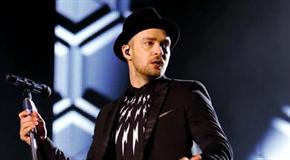Features
In Timberlake Concert film, Demme Captures A Pop Spectacle
The director of “Stop Making Sense,” the landmark 1984 Talking Heads concert film, numerous Neil Young documentaries (including “Neil Young: Heart of Gold”) and a Robyn Hitchcock capsule (“Storefront Hitchcock”), Demme has long been training his cameras on stages to capture the visceral thrill of music in action.

“I’ve come to believe, and I kind of felt this when we did ‘Stop Making Sense,’ that shooting live music is kind of like the purest form of filmmaking,” Demme said in an interview. “There’s no script to worry about. It’s not a documentary, so you don’t have to wonder where this story is going and what we can use. It’s just: Here come the musicians. Here come the dancers. The curtain goes up. They have at it and we get to respond in the best way possible to what they’re doing up there.”
Demme was on Tuesday to premiere his latest concert film, “Justin Timberlake + the Tennessee Kids,” at the Toronto International Film Festival. The film documents the final Las Vegas concerts in 2015 from Timberlake’s two-year “20/20” tour. The film will hit Netflix on Oct. 12.
Though Demme is perhaps most famous for his fiction films (“The Silence of the Lambs,” ‘‘Philadelphia,” ‘‘Something Wild”), music has long coursed through his movies. His last, 2015’s “Ricki and the Flash,” starred Meryl Streep as an aging rock star, long-absent from her family.
“I can’t play any instrument and I have a hideous voice,” Demme says. “But I’ve discovered that when I shoot music, I actually feel like I’ve become part of the band and I have something to do with the creation of music, which is a very good feeling for someone who loves music as much as I do.”
“Justin Timberlake + the Tennessee Kids” is a far larger pop spectacle than Demme has tackled before. To do so, he shot with many more cameras than he usually does. But many of the identifiable elements of a Demme concert film are there: the close eye for the rapport among performers, the unbroken focus on the stage.
“Not everybody is a great subject for a performance film, obviously. You’ve got to have that lucky confluence of events where the music just really thrills you. Just: ‘I want to capture that and share it with people,’“ says Demme. “No, I will never tire of filming music. I love it.”